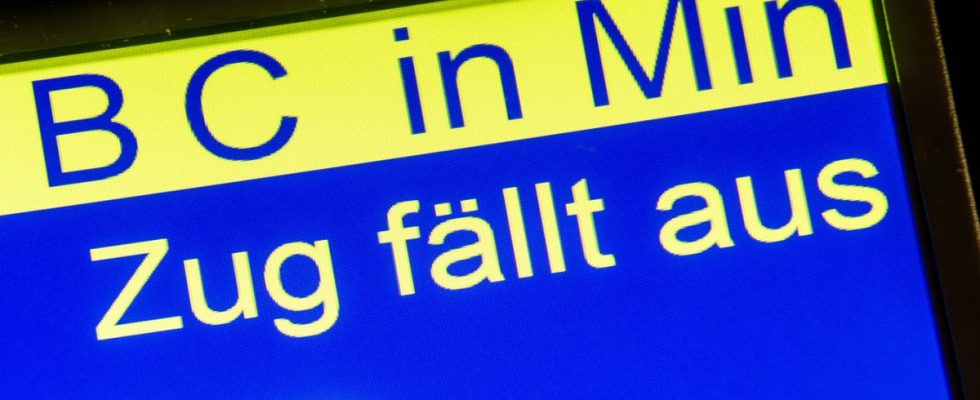The three-day strike by the train drivers’ union GDL will severely affect long-distance and regional transport, as well as commuters and travelers in Bavaria. Deutsche Bahn wants to maintain emergency operations from Wednesday to Friday, but appealed to its customers: “Please postpone your trip.”
The emergency timetable of the Südostbayernbahn only ensures a very limited range of trains in regional transport, the DB announced in Munich. On some routes only a few trains are canceled, but on others most connections have been canceled. In the state capital, the DB expects the first disruptions to S-Bahn traffic from 11 p.m. on Tuesday evening. These will last until Saturday night.
The regional rail operators Agilis, Go-Ahead and Länderbahn are not directly affected by the GDL strike, but are also expecting individual train cancellations and delays at short notice. “Our train drivers are not on strike,” said Go-Ahead spokesman Winfried Karg in Augsburg. “But we travel on the DB network, and if DB dispatchers organized by GDL go on strike, we will also be affected.” Our own employees on the way to work could also not get to their place of work on time due to strikes. Passengers should definitely inform themselves before traveling.
The Bavarian Regiobahn (BRB), whose trains run from Munich towards Tegernsee, Rosenheim and Salzburg, belongs to the Transdev group and is on strike by the GDL, as is the DB. However, “very few employees” belonged to this union, said BRB spokeswoman Annette Luckner. In the eastern German states and the southwest, many railway employees are organized by the GDL. During the last GDL warning strike in December, dispatchers and signalmen in Bavaria only sporadically responded to the strike call, according to the DB. At that time, Deutsche Bahn had stopped 80 percent of long-distance traffic. Most connections on DB regional trains were canceled.
In the collective bargaining round, the GDL is demanding shorter working hours, a 555 euro wage increase and an inflation bonus. The DB offered shorter working hours without wage compensation, eleven percent more wages over a period of 32 months plus inflation compensation.

